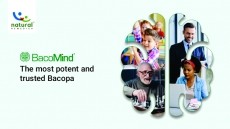'Provocative': Prenatal folic acid supplements linked to lower risk of autism for kids

Supplements of folic acid were associated with as 39% lower risk of autistic disorder in children, compared with children whose mothers did not take folic acid, according to findings published in JAMA.
“Our main finding was that maternal use of folic acid supplements around the time of conception was associated with a lower risk of autistic disorder,” wrote the researchers, led by Pal Surén, MD, of the Norwegian Institute of Public Health, Oslo.
“This finding does not establish a causal relation between folic acid use and autistic disorder but provides a rationale for replicating the analyses in other study samples and further investigating genetic factors and other biological mechanisms that may explain the inverse association.”
Folic acid
Folic acid intake before and during early pregnancy ensures that the fetus does not develop the neural tube defect – commonly known as spina bifida. Women of child-bearing age need sufficient body stores of folate before conception to prevent folate-sensitive neural tube defects (NTDs), which make up 20% to 60%of all NTDs.
Because of this, merely recommending folic acid supplementation before conception has been found to be an unsuitable strategy – mainly due to the fact that many pregnancies are unplanned, and the average time until the first antenatal visit is 9 weeks – meaning neural tube defects may have already occurred before this time.
As such mandatory fortification of staple foods with folic acid began in the USA in 1998; since then over 50 countries around the world have followed suit in adopting a fortification strategy.
The new study indicates that folic acid may also offer additional benefits by reducing the odds of autism in children.
In an accompanying editorial, Robert Berry, MD, and colleagues at the Centers for Disease Control and Prevention in Atlanta said that the study’s findings were reassuring because they found no association between folic acid supplementation and an increased risk for autistic disorder or ASDs.
“This should ensure that folic acid intake can continue to serve as a tool for the prevention of neural tube birth defects. The potential for a nutritional supplement to reduce the risk of autistic disorder is provocative and should be confirmed in other populations.”
Study details
The Oslo-based scientists analyzed data from 85,176 children born between 2002 and 2008 from the Norwegian Mother and Child Cohort Study. The scientists compared the use of folic acid from 4 weeks before to 8 weeks after the start of pregnancy and the incidence of autism spectrum disorders (ASDs) (autistic disorder, Asperger syndrome, pervasive developmental disorder-not otherwise specified [PDD-NOS]).
Over the course of the study, 270 children (0.32%) were diagnosed with ASDs, and the researchers found that there was an inverse association between folic acid use and subsequent risk of autistic disorder.
Specifically, autistic disorder was present in 0.10% of children whose mothers took folic acid, compared with 0.21% in children whose mothers did not take folic acid, which equated to 39 % reduction in the odds of autistic disorder in children of folic acid users.
“No association was found with Asperger syndrome or PDD-NOS, but power was limited. Similar analyses for prenatal fish oil supplements showed no such association with autistic disorder, even though fish oil use was associated with the same maternal characteristics as folic acid use,” added the researchers.
Source: JAMA
2013, Volume 309, Number 6, Pages 570-577, doi:10.1001/jama.2012.155925
“Association Between Maternal Use of Folic Acid Supplements and Risk of Autism Spectrum Disorders in Children”
Authors: P. Surén, C. Roth, M. Bresnahan et al.
Editorial: JAMA
2013, Volume 309, Number 6, Pages 611-613
“Periconceptional Folic Acid and Risk of Autism Spectrum Disorders”
Authors: R.J. Berry, K.S. Crider, M. Yeargin-Allsopp















